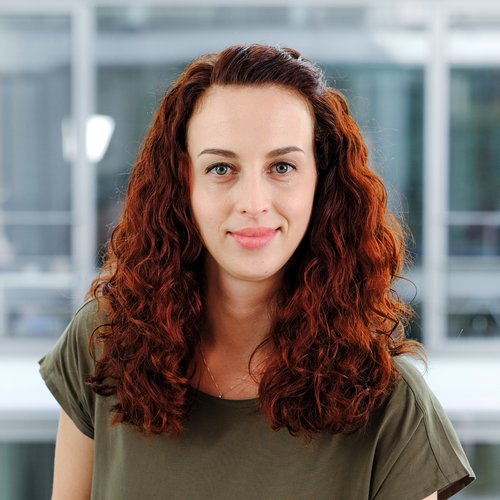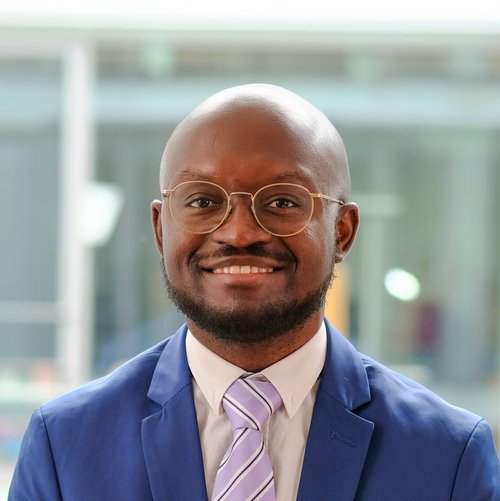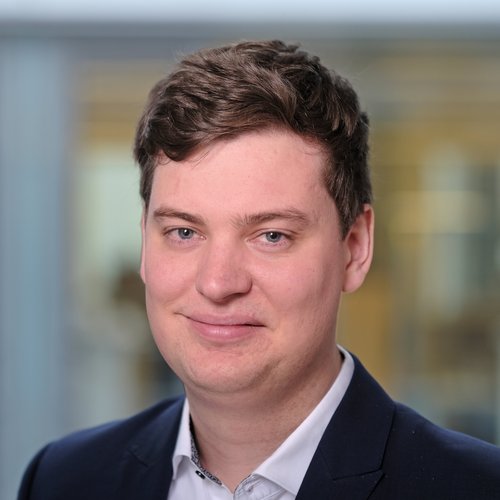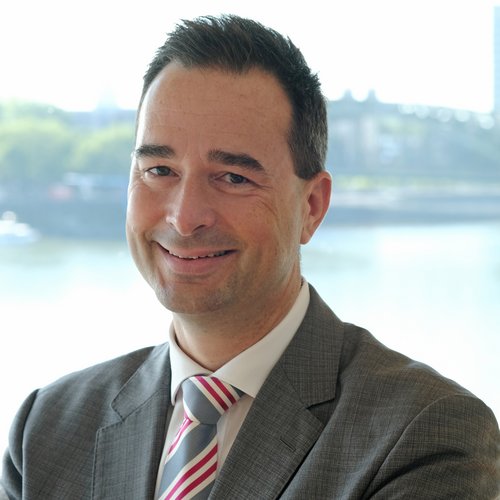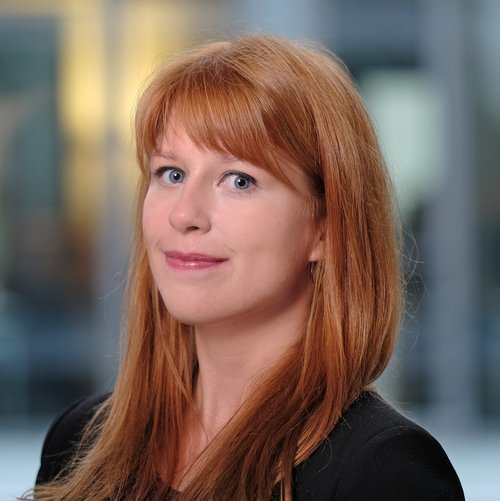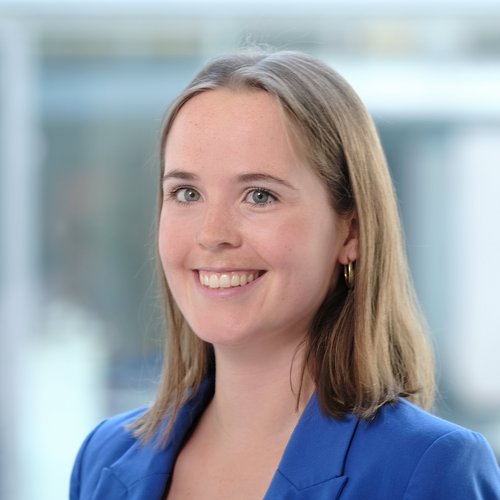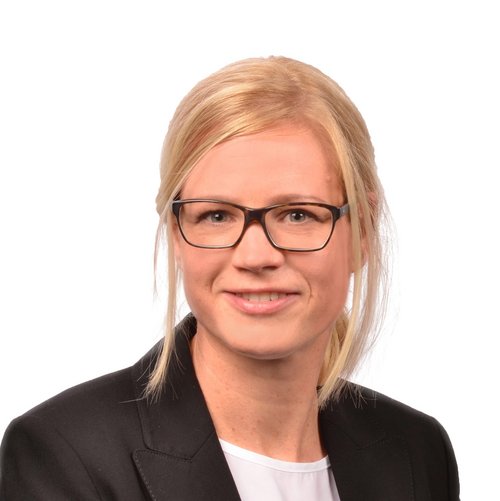The IW's Education, Immigration and Innovation competence area is researching how education and immigration contribute to securing skilled labor.
- Home
- Institute
- Main research topics
- Education, Immigration and Innovation
Education, Immigration and Innovation
The experts scrutinise the educational system from early-childhood teaching, primary and secondary schools right up to tertiary education. The focus is on both monitoring educational processes and policy developments as well as issues of funding and fairness with respect to the education system. Our economists analyse the contribution of migration to securing a skilled workforce, examine the importance of workers qualified in STEM subjects (science, technology, electronics and mathematics) for a country’s innovation performance and investigate whether such workers are sufficiently available to the labour market. The unit identifies potential bottlenecks and suggests how these might be removed.
Sections of the Research Unit
Contact Persons
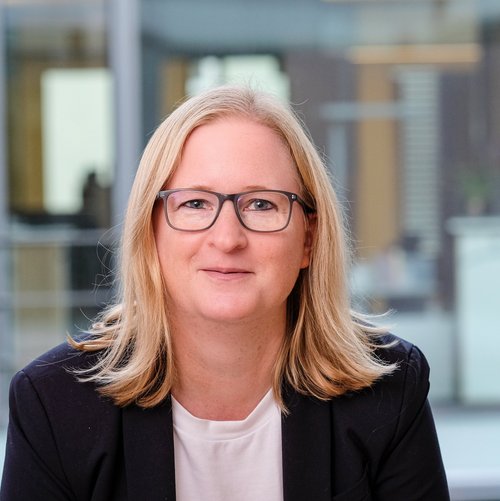
Dr. Christina Anger
Head of the Research Group Microdata and Method Development
Tel: +49 221 4981-718 Mail: anger@iwkoeln.de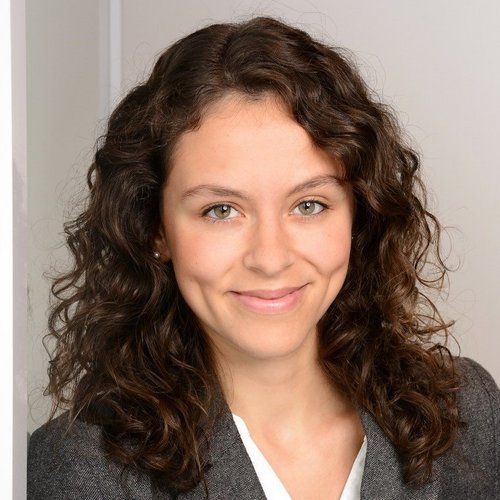
Julia Betz
Consultant Education Monitor and MINT
Tel: +49 221 4981-675 Mail: betz@iwkoeln.de Julia Betz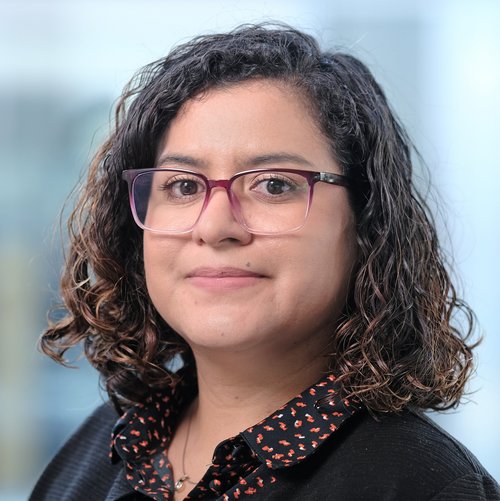
Rosalia Meztli Chino Flores
Consultant in the project „Make it in Germany“
Tel: +49 221 4981-823 Mail: flores@iwkoeln.de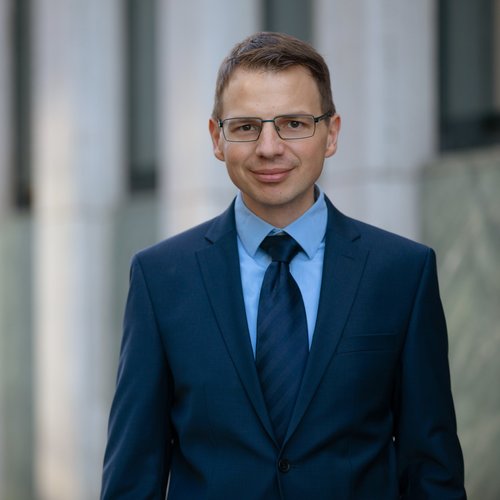
Dr. Wido Geis-Thöne
Senior Economist for Family Policy and Migration Issues
Tel: +49 221 4981-705 Mail: geis@iwkoeln.de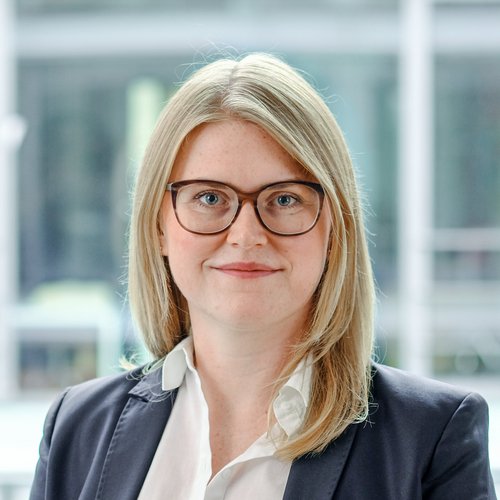
Justina Godesberg
Teamleader Project Make it in Germany
Tel: +49 221 4981-875 Mail: godesberg@iwkoeln.de Justina Godesberg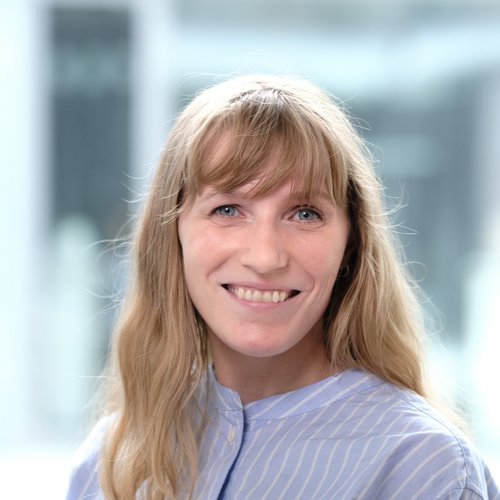
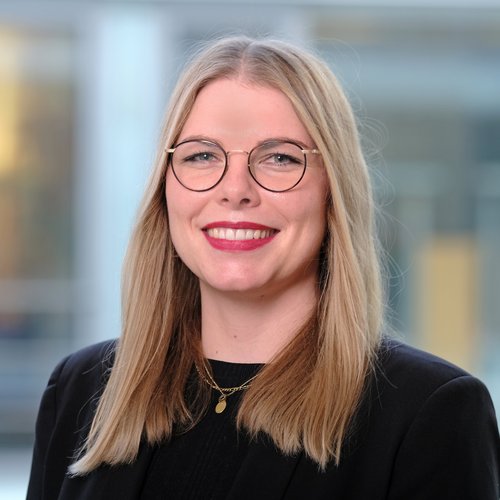
Alexandra Köbler
Consultant for Immigration
Tel: +49 221 4981-687 Mail: koebler@iwkoeln.de Alexandra Köbler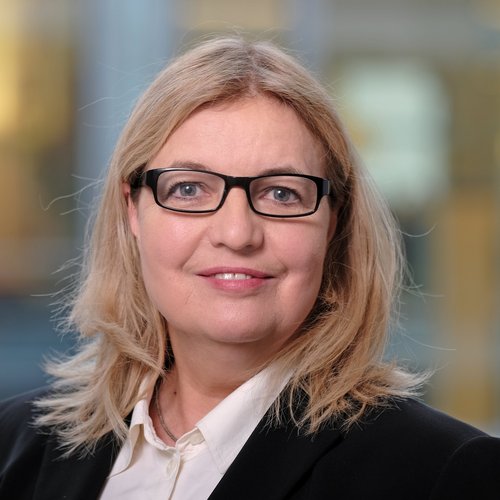
Kerstin Krey
Head of Education, Innovation and Immigration Research Unit
Tel: +49 221 4981-833Fax: +49 221 4981-99833
Mail: krey@iwkoeln.de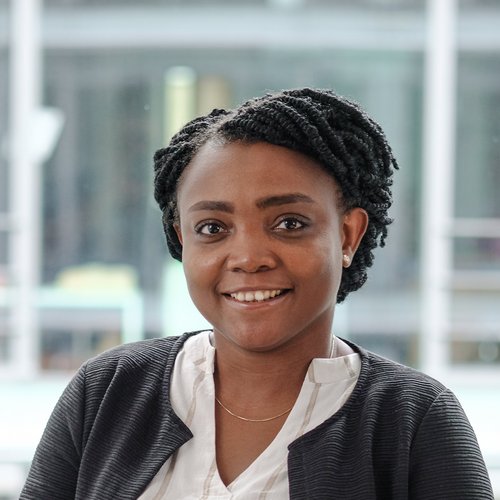
Jeannette Michaelle Nintcheu
Researcher for Immigration
Tel: +49 221 4981-872 Mail: nintcheu@iwkoeln.de Jeannette Michaelle Nintcheu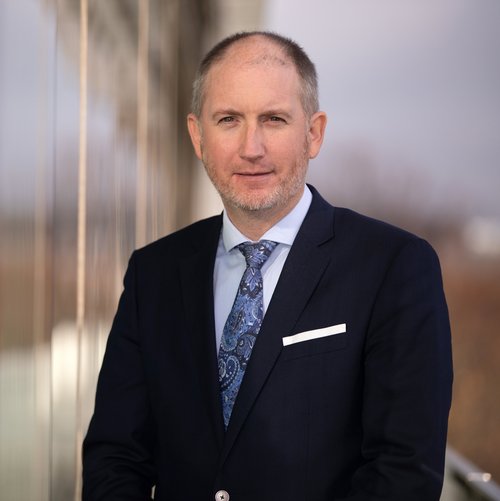
Prof. Dr. Axel Plünnecke
Head of Education, Innovation and Immigration Research Unit
Tel: +49 221 4981-701 Mail: pluennecke@iwkoeln.de @A_Pluennecke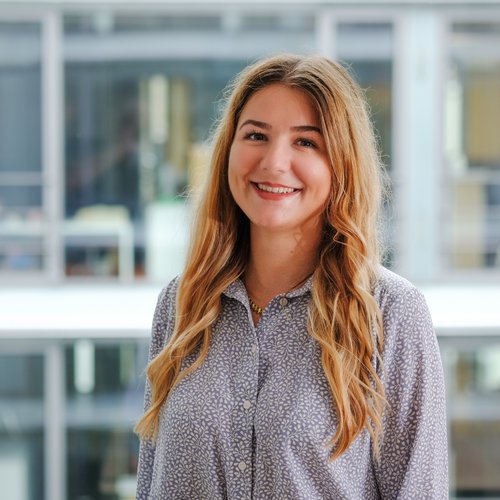
Vanessa Pohlmann
Consultant in the project „Make it in Germany“
Tel: +49 221 4981-834 Mail: Pohlmann@iwkoeln.deAll news
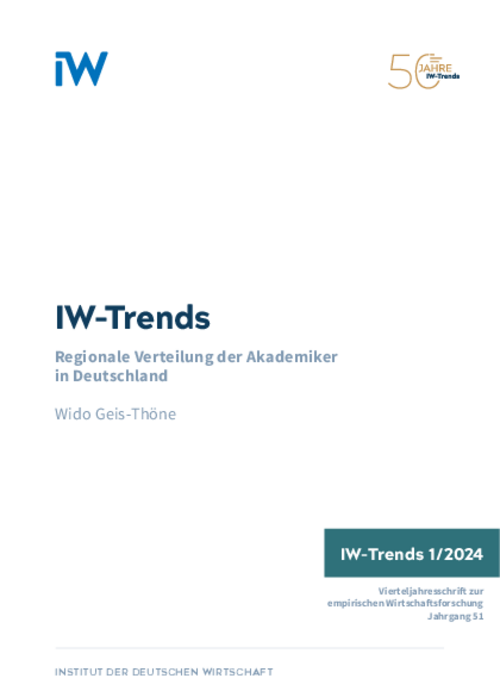
The Regional Distribution of Graduates in Germany
Graduates in Germany are distributed very unevenly across the country. Taking the population aged between 35 and 44, who have generally already completed their higher education, in 2019 the highest proportions of university graduates were to be found in Berlin and the Munich regional planning area.
Wido Geis-Thöne IW
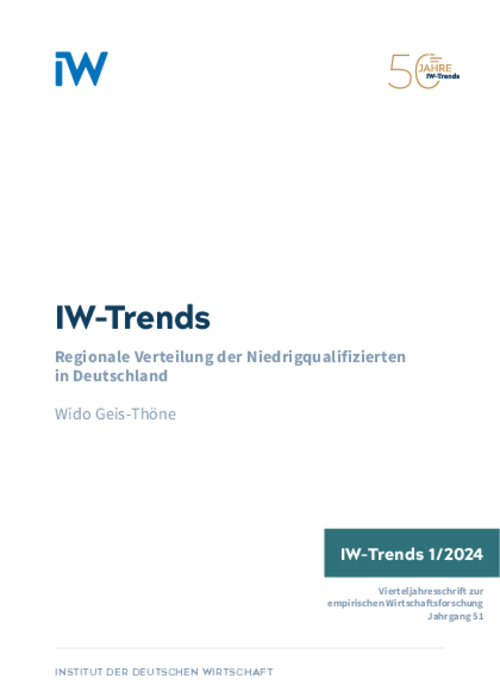
The Regional Distribution of Low-skilled Workers in Germany
Low-skilled workers in Germany are heavily concentrated in urban areas. In 2019, the proportion of 25- to 64-year-olds who had not completed at least two years of vocational training or higher education was almost twice as high in cities with a population of over 100,000 (20.8 per cent) as in small municipalities with fewer than 5,000 inhabitants (10.7 per cent).
Wido Geis-Thöne IW
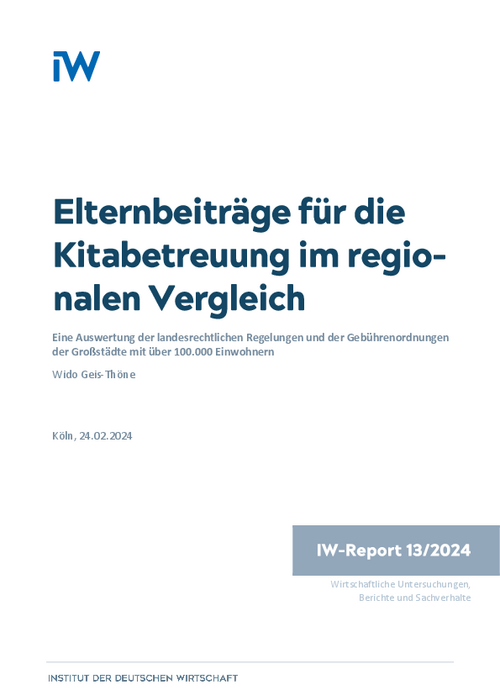
Parental contributions for childcare in a regional comparison
The federal states take very different approaches to organising parental participation in the costs of state and state-funded childcare.
Wido Geis-Thöne IW
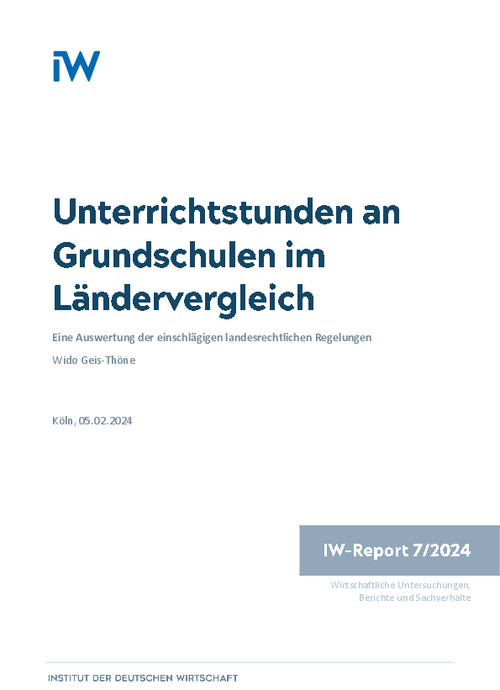
Teaching hours at elementary school country comparison
Young people's educational paths are very much predetermined during their primary school years. On the one hand, the basic skills of reading, writing and maths are acquired, and, on the other hand, the joint learning of all children ends with the transition to secondary level I.
Wido Geis-Thöne IW
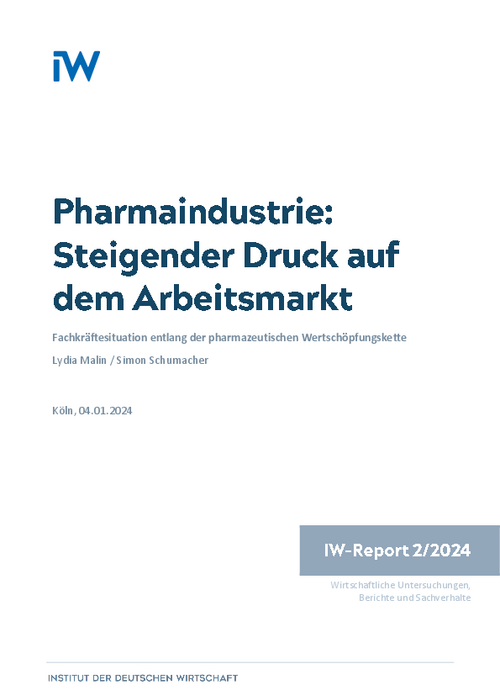
Pharmaceutical industry: Increasing pressure on the labor market
The shortage of skilled workers poses significant challenges for pharmaceutical companies in Germany and is expected to become increasingly problematic in the context of demographic changes. Concerning Germany's positioning in the international competition among innovative pharmaceutical locations, this shortage could become a hindrance.
Lydia Malin / Simon Schumacher IW
Your search returned an incorrect status. You may have selected too many filters. You can jump back to your previous selection to adjust your search.
With our new newsletters on the following topics you no longer have an IW publication.
We send out our topic-specific newsletters every month.
Register here
With our new newsletters on the following topics you no longer have an IW publication.
![[Translate to Englisch:] iStock](/fileadmin/_processed_/4/b/csm_Ganztagsgrundschule-iStock-1161168861_3598f31787.jpg)
